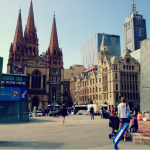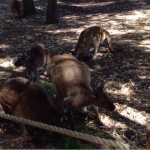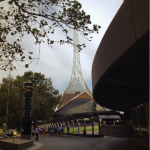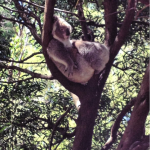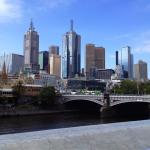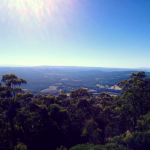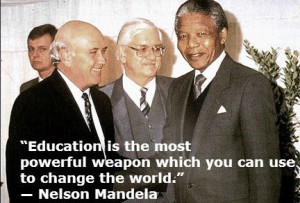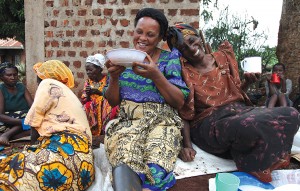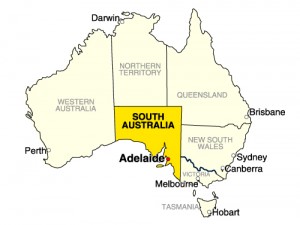After 33 hours of travelling, I finally arrived in Melbourne, Australia on January 20. With a few days rest, the haze of the jet lag had left and the fact that I was halfway around the world had finally sunk in. This was going to be an adventure!
My experience here has so far been one of the most amazing and most adventurous of my life. Travelling around the world alone, exploring a foreign city, seeing some Aussie animals, learning Aussie slang and trying Aussie foods has been part of this amazing past week. I’ve learned some new words, such as; barbie, jumpers, bathers, thongs and bogan, just to name a few. I also went to Healesville Sanctuary where I saw platypus, wombats, Tasmanian devils, kangaroos and koalas.
A new country comes with new accents, foods, animals and vocabulary. It’s strange because even though Melbourne is halfway around the world, there aren’t many differences from Montreal. The biggest change is the climate…I was really excited to be leaving the freezing cold but was not so sure what I was getting myself into. When I stepped outside this afternoon, I felt like I was walking into an oven at 43°C.
Another difference is that people here have clotheslines instead of driers to make use of the scorching hot sun, which can be very useful if the weather was ever accurate. This could be the most important thing I’ve learned here so far, don’t trust the weather reports. One food that I was encouraged to try was vegemite, a salty brown paste that Australian’s like to put on their toast; I thought it was quite disgusting.
Everyone here has been really welcoming and friendly, especially my host family. They have gone out of their way to make me feel at home. The people I’ve met have been really interested by the fact that it can get so cold in Canada and are perplexed at the thought of coping with such freezing weather because 20°C is cold for them.
Tomorrow is my first day of school; I am really excited to meet some more people. I am so happy to have had such an amazing opportunity of going on an exchange and I am looking forward to the weeks to come. – Aiyana Kaplan ’16

